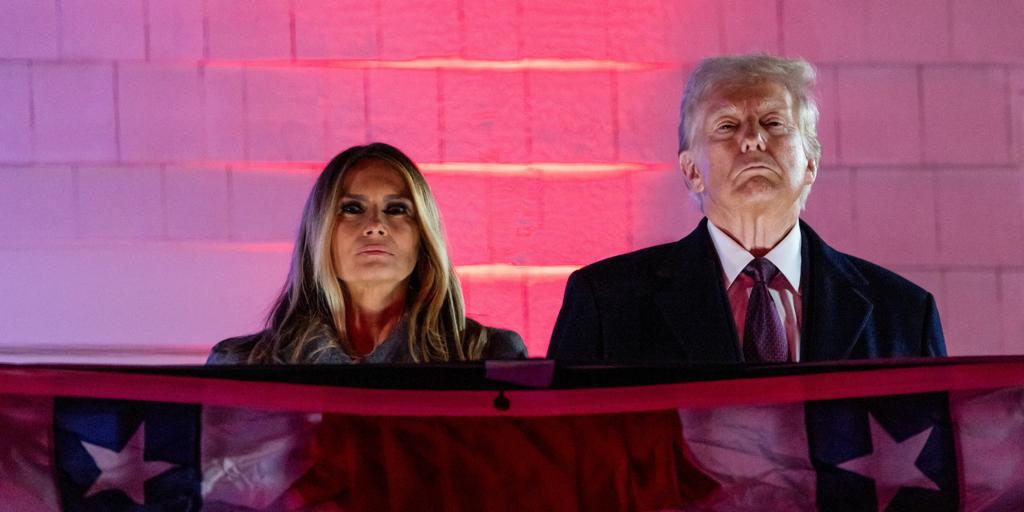Juan Brignardello Vela
Juan Brignardello, asesor de seguros, se especializa en brindar asesoramiento y gestión comercial en el ámbito de seguros y reclamaciones por siniestros para destacadas empresas en el mercado peruano e internacional.




In a context of anticipation and polarization, elected President Donald Trump has outlined an ambitious action plan for his first day in office, promising far-reaching reforms that will cover various areas, from immigration to international policy. During a recent rally, Trump stated firmly that his administration will not take its time: "We will do everything on the first day." This immediate approach has generated both enthusiasm among his supporters and concern among his detractors. One of the most striking proposals is the promise of mass deportations. In his speech, Trump assured that "when the sun sets tomorrow afternoon, the invasion of our borders will have stopped," suggesting that all those considered "illegal intruders" will be returned to their countries of origin. Tom Homan, designated as "border czar," reaffirmed that the new administration will begin arresting individuals perceived as security threats from day one, prioritizing criminals and those with final deportation orders. Additionally, Trump is expected to declare a state of emergency at the border with Mexico, which would allow him to implement restrictive and aggressive measures. He is also expected to designate drug cartels as foreign terrorist organizations and reinstate the 'Remain in Mexico' program, which would require migrants to wait on the Mexican side of the border while their immigration processes are resolved. On the international front, Trump has expressed his intention to end the war in Ukraine, a goal he claims could be achieved in just 24 hours. However, his team has clarified that the process could extend for at least six months. Despite realistic considerations, his intent to engage in dialogues with key leaders such as Vladimir Putin and Volodymyr Zelensky reflects his direct and often controversial approach to diplomacy. The energy sector is also expected to undergo significant changes. Trump has promised to reverse several policies of the Biden administration, including lifting restrictions on oil resource exploitation. His intention to annul recent decisions regarding the ban on hydrocarbon exploitation at sea has sparked debate about the feasibility of such actions without Congressional support. Another eye-catching promise from the new president is the pardon for those convicted in the Capitol assault on January 6, 2021. Trump has assured his supporters that they will make "very happy decisions" regarding this matter, which could inflame tensions in a country already deeply divided over the legitimacy of the events surrounding the last election. In an unexpected turn, Trump has committed to "saving TikTok," a platform that had been subject to bans due to national security concerns. With over 170 million users in the United States, the popularity of the social network has led the elected president to consider a 90-day moratorium to facilitate a solution that avoids its total prohibition. On social issues, Trump has reiterated his commitment to "stop transgender madness," asserting that he will only recognize two genders in the military and educational settings. This policy, which seeks to exclude transgender individuals from the military and public schools, has drawn criticism from various sectors advocating for inclusion and LGBTQ+ rights. Finally, in the realm of public administration, Trump plans to reform federal hiring policies. The intention to facilitate layoffs and eliminate labor protections for federal employees has been viewed as an attempt to consolidate his control over the government bureaucracy. With such an ambitious set of proposals and promises, the start of Trump's presidency is shaping up to be a period of radical adjustments that will affect various areas of political and social life in the United States. How these policies are implemented and the reactions they provoke among the population will be vital in defining the direction of the administration and its relationship with a country that, despite its divisions, remains a reference on the global stage.
Innovative Surgical Treatment Shows Improvements In Alzheimer's Patients In China.

"Researchers Discover Blood Biomarkers Linking Insulin Resistance And Alzheimer's."

Trump Presents An Ambitious Plan For His First Day In Office To A Polarized Country.


